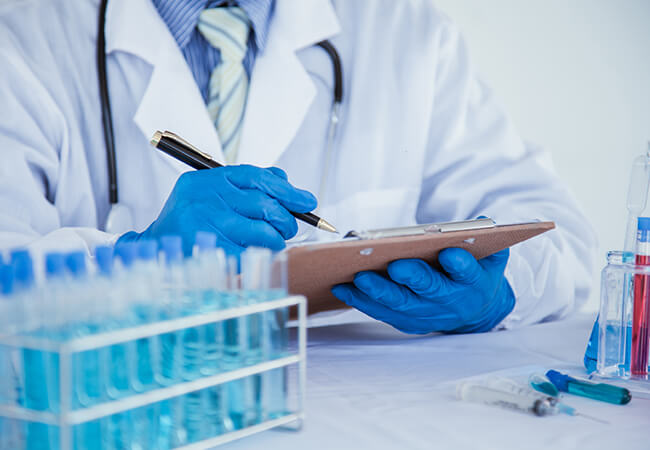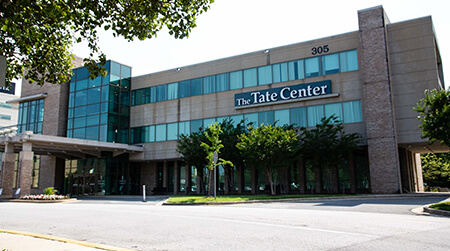

Leukemia is a broad term used for various cancers of the blood and blood-forming tissues of the body. The conditions usually involve abnormal production of white blood cells. With Leukemia, the bone marrow produces a high amount of WBC that does not function properly.

We offer compassionate and advanced cancer care at Chesapeake Oncology-Hematology Associates (COHA). We develop personalized treatment plans, combining multiple treatment options for the patients if needed. We help our patients understand their diagnosis and available treatment options.
Chemotherapy is an effective leukemia treatment. It starts as induction chemotherapy and advances into the intensification and consolidation phase. Multiple drugs are given intravenously or intrathecally in a preset regimen to destroy the malignant cells. Chemotherapy can lead patients with acute promyelocytic leukemia into a period of remission.
Radiation therapy can be used to destroy cancer cells and manage pain or discomfort resulting from an enlarged liver, spleen, or swollen lymph nodes. It can also relieve the bone pain that occurs due to damage caused by malignant cells in the bone marrow.
To restore the healthy bone marrow in leukemia patients, stem cell transplantation (SCT) is performed. After intensive chemotherapy and radiation therapy sessions, SCT is performed to transplant the dysfunctional bone marrow. It restores the healthy bone marrow growth and immune system.

8:00 AM ~ 4:30 PM (M-F)

8:00 AM ~ 4:30 PM (M-F)

8:00 AM ~ 4:30 PM (M-F)
The causes of leukemia are not known. Without a clear cause, it is hard to prevent leukemia. Early diagnosis can manage the risk and reduce its fatality. By making simple lifestyle changes, a person can reduce the risk of developing cancer.
In acute leukemia, the leukocytes develop quickly and become dysfunctional cells, i.e., blast cells, as they leave the bone marrow. Chronic leukemia is slow-growing cancer where leukocytes develop at a slower rate. It takes years for symptoms to surface. It’s a severe condition with very few treatment options.
Stem cell transplantation is the newest form of leukemia treatment and has a great success rate. It involves the replacement of damaged bone marrow that’s incapable of producing healthy stem cells. Stem cells are crucial because they can transform in many forms. In leukemia, they lose their transforming ability, resulting in excessive WBCs. After stem cell transplant, the healthy stem cells regain their ability to form RBCs, platelets, and WBCs in the right proportion.
Leukemia marks its presence with flu-like symptoms. Some early symptoms of leukemia include running nose, fatigue, and fever. Other leukemia symptoms include swelling or tenderness in the lymph nodes, liver, or spleen, minute red spots below the skin, inflamed or bleeding gums, and sweating. If these symptoms do not subside and are accompanied by frequent infections, loss of appetite and weight, and recurrent bleeding, it’s time to see the doctor.
Leukemia can be diagnosed by analyzing the patient’s blood sample. An abnormal Complete Blood Count (CBC) report can be the first indicator of leukemia. A needle biopsy and aspiration of bone marrow from pelvic bone is performed to confirm this malignant condition to test leukemic cells, DNA markers, and chromosome changes in the bone marrow.
Becoming part of a clinical trial is a very personal choice. Being open to new drugs and treatment comes with its advantages and disadvantages. Clinical trials give access to treatments that are not yet available to everyone. However, they come with associated risks. Speak with our team to discuss all of your options.